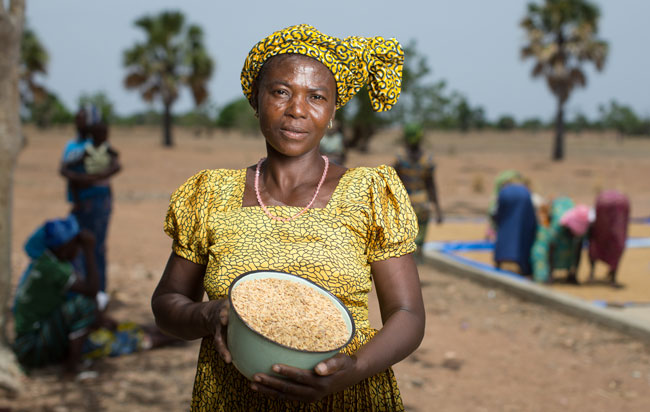For the women of Tonte village in the savannahs of Northern Togo, rice has become an important part of life.
Rice first became commonplace in the regional when the UN distributed emergency rice rations during a series of food crises in the early years of the new millennium. Since then the grain has become as popular as maize and millet to the local diet. And its become much more than that for the people of Tonte.
Today, thanks to support from Self Help Africa, 100 local households are earning a living from growing, processing, marketing and trading rice across the region. 91 of the farmers involved in the enterprise are women
Villagers are using the additional income they are earning along different stages of the rice ‘value-chain’ to buy livestock, improve homes and send children to school. The evidence is plain to see.
60 farming families in Tonte are producing rice commercially in a low-lying wetlands area close to the village, while a women’s group has been formed that is parboiling and processing the grain into white rice, which earns a premium in the marketplace. The main sales are made in the regional capital Dapaong, which is 30 miles away, and the home of over 80,000 people.
Involvement with this village-wide rice enterprise doesn’t end with growing and processing either, for 10 women in Tonte have started a separate business producing and selling rice seed to others across the region, while mini-businesses have sprung up in the sale and transportation of rice by motorbike, in wider trading of brown and white rice, in milling, and in other related enterprises.
Tomato, chilli, onion and other vegetables are grown by 20 local farmers in the rice paddies during the hot dry season. They use water available from boreholes that have been hand dug adjacent to the fields, although the wells do not provide a year-round supply, and are dry for as long as three-months, each year.
The rice business in Tonte is booming, and in the past year a grain store and concrete drying area have been constructed to assist with the storage and processing of grain.

